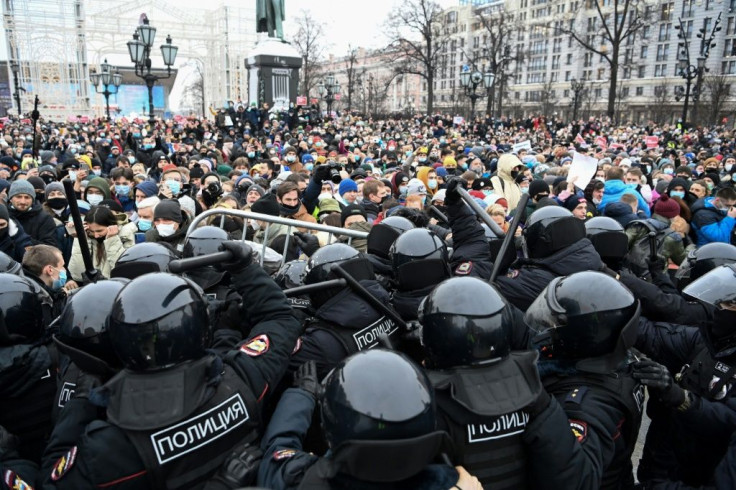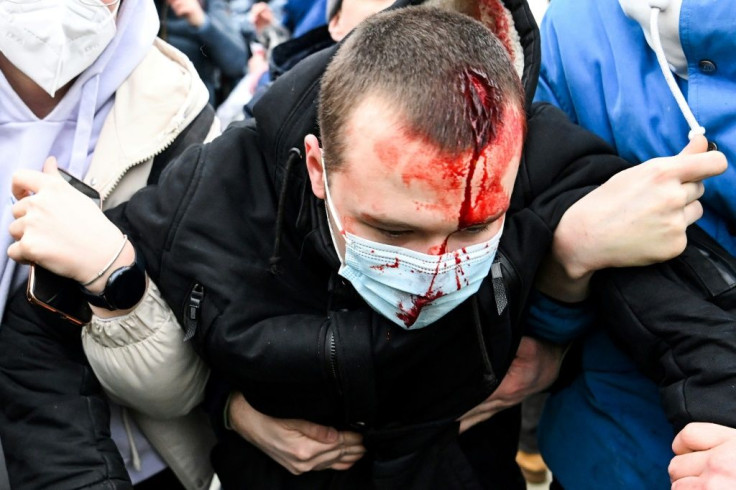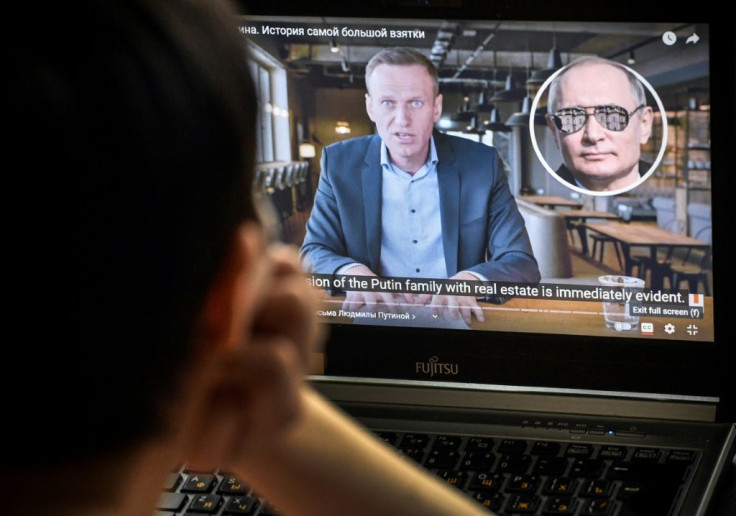Navalny Scores Points In Standoff With The Kremlin
Thousands across Russia braved police violence and legal action this weekend in a symbolic victory for jailed opposition politician Alexei Navalny, whose standoff with the Kremlin promises to be protracted and above all very risky.
Vladimir Putin's top opponent has been imprisoned since mid-January on his return to Russia from Germany, where he spent five months recovering from poisoning with a nerve agent that he blames on the Russian president.
But even from behind bars, the 44-year-old anti-graft campaigner has managed to score points in his battle with the Kremlin.

In addition to Saturday's rallies across Russia, his investigation into a luxury complex on the country's Black Sea coast that he alleges is owned by Putin has garnered more than 85 million views in less than a week.
The Kremlin, which recently described Navalny as a "blogger of no interest to anyone," was even forced into parrying his blows.
Putin on Monday denied he or any of his family owned the palace and Kremlin spokesman Dmitry Peskov on Sunday dismissed the weekend protests.
"Few people came out, while many vote for Putin," Peskov said on the state-run Rossiya 1 channel.

Yet despite the dismissals, Navalny's budding protest movement is far from trivial.
With parliamentary elections coming up in September, the opposition figure is aiming to build support for unseating the ruling United Russia party, which has seen its approval ratings slide in recent years.

In comments to AFP, Leonid Volkov, Navalny's right-hand man, hailed Saturday's protests as "historic".
Later on social media he announced that further rallies would take place across the country on Sunday at noon.
Andrei Kolesnikov, a political analyst with the Carnegie Moscow Centre, expects that the protest mood will not dissipate immediately.
But he warned against "euphoria" for the opposition.

"The regime has a huge resource for survival, including the still indifferent majority of the population," he wrote on Twitter.
Volkov also admitted that the battle will be "difficult" and in the wake of the protests, the Russian law enforcement machine revved into motion.
After police detained a record number of nearly 3,700 people in 125 cities, local media reported that investigators by Monday morning had launched a raft of criminal cases into violence against law enforcement officials.
Later Monday a protester was handed the first punishment, the TASS state news agency reported, of 10 days in detention.
The protesters were ultimately risking punishment in the hopes of helping Navalny escape prison time.
On February 2 a court will begin hearing whether his 2014 suspended sentence for fraud of 3.5 years should be converted to prison time for skipping out on twice-monthly meetings with Russia's prison service while he was in Germany.
Navalny is also the target of an investigation for large-scale fraud, a charge punishable by up to 10 years in prison, and faces libel charges in a trial that is set to commence on February 5.
Meanwhile, with Navalny's team mobilising protesters ahead of the weekend rallies online, authorities are increasing the pressure on tech platforms.
Their ire has landed in particular on TikTok, a video-sharing app popular among teens, where thousands shared videos in support of the protests in advance.
On the eve of the rallies, the Investigative Committee, which probes major crimes, launched a probe over the "inciting of minors to participate in illegal activities that could endanger their lives".
The government stance is that Navalny, with the help of social media, has manipulated Russia's youth for political ends.
Dmitry Kiselyov, a popular television presenter known for his pro-Kremlin views, used his Sunday primetime programme to accuse Navalny of crafting his "propaganda in such a way that among his supporters there are many adolescents and children."
Kiselyov, who is under Western sanctions, put his own view of Navalny and his team succinctly: "Political paedophiles".
© Copyright AFP 2024. All rights reserved.





















